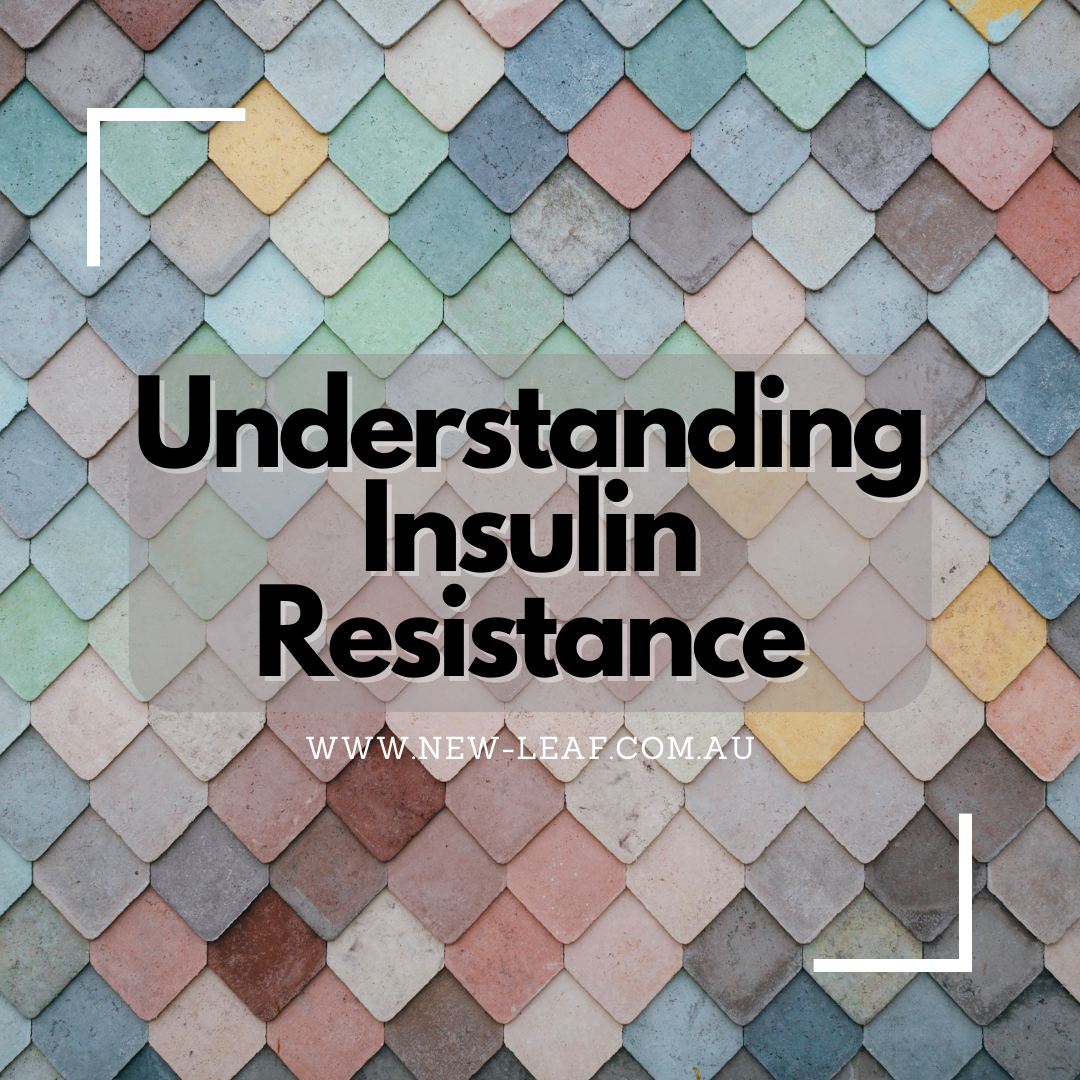What is Insulin Resistance?
Think of your body as a house, and glucose (sugar) is the fuel that powers everything inside. Insulin is like a key that unlocks the doors of the cells in your body, allowing glucose to enter and provide energy. Understanding how to use Intuitive Eating to support Insulin Resistance and Lower HbA1c can sound complex at first.. and confusing. We'll make it easy.
In a body without Insulin Resistance, when you eat, insulin is released and acts like a key to let glucose into the cells. However, in insulin resistance, the cells become stubborn and don't respond to insulin very well. It's like the cells have trouble recognising the key, so they don't open the door as easily.
To compensate for this, the pancreas (an organ in your body) produces more insulin to try and persuade the cells to let glucose in. But even with the extra insulin, the cells remain resistant, and the glucose cannot enter effectively. This means there is more glucose in your bloodstream, leading to higher blood sugar levels.
Over time, if insulin resistance continues, it can lead to problems like type 2 diabetes, where the body struggles to regulate blood sugar levels properly.
To improve insulin resistance, it's important to make healthy lifestyle changes. Eating a balanced diet, exercising regularly, and maintaining a healthy weight can help the cells become more responsive to insulin. This way, the glucose can enter the cells more easily, providing the energy your body needs to function properly.
So, insulin resistance is like a situation where the cells in your body don't listen well to insulin, causing a buildup of glucose in your bloodstream. By adopting healthy habits, you can help your body work better and avoid potential health issues down the line.
An Intuitive way to manage Insulin Resistance and Lower your HbA1c:
- Adopt a wholefood diet: Embrace a balanced and nourishing diet that includes whole foods, proteins, high-fibre carbohydrates (like whole grains, legumes, and vegetables), and healthy fats. Try to limit your intake of refined sugars, processed foods, and sugary beverages.
- Honour your appetite and listen intuitively: Understanding your body's cues for cravings and aversions can be a bit confusing with insulin resistance, but it's important to develop a positive relationship with your body, food, and health. Trust your intuition when it comes to eating.
- Don't be afraid of carbs: Include whole grains, legumes, non-starchy vegetables, and whole fruits in your diet. These foods cause a slower rise in blood sugar levels compared to high-glycemic index foods.
- Regular physical activity: Engage in regular exercise to help lower blood sugar levels and improve insulin sensitivity. Exercise doesn't have to be perfect or intense. Start with something you enjoy, whether it's dancing, going to the gym, doing some weightlifting, or even a thorough cleaning session at home. Start small and build from there.
- Stress management: Chronic stress can affect blood sugar levels. Incorporate stress management techniques such as meditation, deep breathing exercises, or activities that bring you joy to help manage stress.
- Get enough sleep: Aim for 7-8 hours of quality sleep each night. Getting sufficient sleep plays a role in blood sugar control and overall health.
- Stay hydrated: Drink an adequate amount of water throughout the day to stay hydrated and support your overall health.
- Regular check-ups: Make it a habit to regularly visit your healthcare provider for check-ups, and to monitor your progress. You need support and motivation to get
- Monitor blood sugar levels: Keeping an eye on your blood sugar levels using a glucose meter and keeping a record of your readings can provide valuable insights into how your body responds to different foods, activities, and medications. While it may take some time, understanding your body's response to glucose is important.
- Explore more - read about Intutive Eating in more detail.
What health conditions are associated with Insulin Resistance?
Insulin resistance is associated with several conditions and health problems. Some of the most common ones include:
- Type 2 Diabetes: Insulin resistance is a key factor in the development of type 2 diabetes. When the cells become resistant to insulin, it becomes difficult for glucose to enter them, resulting in elevated blood sugar levels.
- Perimenopause: One of the hallmarks of the transition to menopause is IR. It happens without people realising, its driven by hormones and stress and how our bodies deal these changes.
- Metabolic Syndrome: Insulin resistance is a core component of metabolic syndrome, which is a cluster of conditions that includes high blood pressure, high blood sugar levels, abnormal cholesterol levels, and excess abdominal fat. These factors together increase the risk of heart disease, stroke, and type 2 diabetes.
- Polycystic Ovary Syndrome (PCOS): PCOS is a hormonal disorder that affects women and is characterised by insulin resistance, high levels of androgens (male hormones), irregular menstrual cycles, and the development of cysts in the ovaries.
- Non-Alcoholic Fatty Liver Disease (NAFLD): Insulin resistance is closely associated with NAFLD, a condition characterised by the accumulation of fat in the liver. Over time, it can progress to more severe liver conditions, such as non-alcoholic steatohepatitis (NASH) and cirrhosis.
- Cardiovascular Disease: Insulin resistance is an independent risk factor for cardiovascular disease. It can contribute to the development of high blood pressure, abnormal cholesterol levels, inflammation, and the formation of plaque in the arteries, increasing the risk of heart attacks and strokes.
- Sleep apnoea: Insulin resistance and obesity are often linked to sleep apnea, a disorder characterised by interrupted breathing during sleep. Sleep apnea, in turn, can further worsen insulin resistance.
All content and media on the New Leaf Naturopathic Health's website is created and published online for informational purposes only. It is not intended to be a substitute for professional medical advice and should not be relied on as health or personal advice.
